Parts Needed to Add Hydraulic Drum Brakes to a Trailer
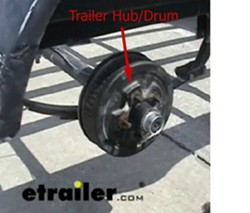

Are you thinking about adding hydraulic drum brakes to your trailer that has no brakes? Or perhaps you want to change from electric drum to hydraulic drum brakes. In either case, you will need some basic information to build a system that will stop your trailer safely and dependably. The following article and tables provide information about your options and will help you find parts that will work together. If you just want to find parts quickly, see our Parts Reference Table, below.
Why Go with Hydraulic Drum Brakes
Hydraulic drum brakes can provide a safe and secure braking system with strong stopping power for your trailer. And because a hydraulic braking system lacks electrical parts, a trailer with hydraulic brakes can safely be backed into water. This makes hydraulic brakes perfect for boat trailers.
Parts Reference Table
| Parts for Adding Hydraulic Drum Trailer Brakes | ||||||||
|---|---|---|---|---|---|---|---|---|
| Trailer | ||||||||
| Part | Brake Mounting Flange | Spindle | Drum Brake Assembly | Hub and Drum | Hydraulic Drum Brake Actuator | Brake Line Kit | ||
 |
 |
 |
 |
 |
 | |||
| Consider | Axle diameter | Bearing and seal dimensions B - C - D - Axle capacity - | Bearing spindle seal Wheel bolt pattern | Hub diameter Hub bolt pattern | Select Hydraulic Surge Brake Actuator | Type of axle Number of axles | ||
Trailer Brake Mounting Flanges

To operate the brakes, your trailer's axle must have a brake mounting flange attached behind the existing hub assembly on each side. Most axles have these, and if your trailer already has brakes (electric or hydraulic) it will. But if your trailer has no brake mounting flanges, you have two options.
1. You can replace the axle with a properly rated one that already has brake flanges welded in place. Ordering a new axle complete with hydraulic disc brakes may actually cost less than buying separate parts. However, to order a complete axle you will need to know the axle capacity, wheel diameter, wheel bolt pattern, spindle type (whether it is drop or straight) and type of brake assembly - in this case, hydraulic. You will also need to know the distance between your trailer's leaf springs, center to center, and between the hub faces.
2. You can purchase brake flanges and have a qualified welder weld them to the axle. When a brake mounting flange is welded to an axle, it must be welded square and concentric. This usually requires a jig to hold both parts in position. A trailer shop should have the equipment and personnel to weld brake mounting flanges to your axle.
Pictured (above, right) is the most popular brake mounting flange. It's a square, four-bolt pattern that is used on most axles up to and including 3,500 pounds. The next-most-popular flange is the five-bolt design, which is commonly used on 5,200, 6,000 and 7,000 pound axles. The pattern of the holes in the flange is standard, so all you need to note is the axle diameter and the number of holes in the mounting flange.
Trailer Hub-and-Drum Assemblies

If your trailer axle has brake flanges and you plan to add the other brake components separately, you must select hub-and-drum assemblies that are compatible with the trailer spindles. The numbers stamped into your trailer's existing bearings and seals will help you determine the proper hub-and-drum assemblies. You will also need to know the wheel bolt pattern of your existing hubs so that the new hubs will match up with your existing wheels. For help with determining wheel bolt pattern, see our article, Determining the Bolt Pattern of Your Wheel. If you cannot find part numbers for the bearings and seals, you can measure the spindles (see spindle diagram) at the inner (C in diagram) and outer (D in diagram) bearing surfaces, as well as the seal contact surface (B in diagram).


This is our most popular setup for a 3,500-lb axle. Notice the tapered spindle. It uses L68149 inner bearings (dimension C) and L44649 outer bearings (dimension D). The 10" hub-and-drum with a 5 on 4-1/2" wheel bolt pattern is also pictured.
If you're switching from electric drum brakes, you should be able to use your existing hub-and-drum - just note its inner diameter.
Hydraulic Trailer Brake Assemblies


Once you've selected a hub-and-drum, you can choose a compatible hydraulic brake assembly. You need to know that the brake assembly is compatible with the brake mounting flange and with the drum's diameter and depth. The labeled drum shows the measurements that you need to know to select a brake assembly.
Brake Line Kits for Trailers


Next, you will need a brake line kit to plumb the trailer from the hydraulic surge actuator to the drum brake assemblies. Brake line kits are selected according to the number of axles on the trailer. If your trailer has a torsion axle, you will need to get a brake line kit that includes flexible lines to the brake assemblies. This will allow the line to flex with the movement of the axle.
Hydraulic Drum Brake Actuator

Another item your trailer will need is a brake actuator, a device that applies pressure to the brake lines to activate the brakes. The actuator is bolted or welded to the trailer at the tongue and connects to the ball on the hitch of the tow vehicle. The actuator works by compression. When the tow vehicle slows, the trailer pushes against the actuator, thereby causing it to apply the brakes.
When selecting a brake actuator you must select one that meets or exceeds the GTWR of the trailer. The actuator must also match the size of the hitch ball on the tow vehicle. You can also select manual or electric reverse lockout options if you would like to prevent your actuator from applying your trailer brakes when you back your trailer.
You should also select a brake actuator that is designed for drum brakes. Hydraulic drum brakes operate at a lower pressure (1,000 psi) than disc brakes (1,500 psi), so make sure you select a compatible actuator.
Common Combinations of Trailer Brake Components
| Typical Components by Axle Capacity for Adding Hydraulic Drum Brakes | ||||||||
|---|---|---|---|---|---|---|---|---|
| Axle Size | EZ Lube Option | Brake Flange | Bearings | Seal | Brake Assembly | Hub/Drum and Bolt Pattern | Surge Actuator | Brake Line Kit |
| 2,000-lb Axle 1-3/4" Diameter | Standard | 4-34 | Inner - L44649 Outer - L44649 | 10-9 | LH - 7" x 1-3/4" RH - 7" x 1-3/4" | 4 on 4" - 8-276-5 5 on 4-1/2" - T1554500042 | T4332900 | Single axle - T4829900 |
| EZ Lube | 4-34 | Inner - L44649 Outer - L44649 | 10-60 | LH - 7" x 1-3/4" RH - 7" x 1-3/4" | 5 on 4-1/2" - 8-271-7UC3-EZ | T4332900 | Single axle - T4829900 | |
| 3,500-lb Axle 2-3/8" Diameter | Standard | 4-35 | Inner - L68149 Outer - L44649 | 58846 | LH - 10" x 2-1/4" RH - 10" x 2-1/4" | 5 on 4-1/2" - 84546UC3 | T43329007K T43397007K | Single axle - T4829900 Double axle - T4830000 |
| EZ Lube | 4-35 | Inner - L68149 Outer - L44649 | 10-19 | LH - 10" x 2-1/4" RH - 10" x 2-1/4" | 5 on 4-1/2" - 84546UC3-EZ | T43329007K T43397007K | Single axle - T4829900 Double axle - T4830000 | |
| 5,200-lb and 6,000-lb Axle 3" Diameter | Standard | 4-44-1 | Inner - 25580 Outer - 15123 or LM67048 | 10-1 or 42385 | LH - 12" x 2" RH - 12" x 2" | 6 on 5-1/2" - 42656 | T2477600 T2478100 | Single axle - T4829900 Double axle - T4830000 |
| Inner - 25580 Outer - 02475 or 14125A | 10-1 or 42385 | LH - 12" x 2" RH - 12" x 2" | 8 on 6-1/2" - 42866UC3 | T2477600 T2478100 | Single axle - T4829900 Double axle - T4830000 | |||
| EZ Lube | 4-44-1 | Inner - 25580 Outer - 15123 or LM67048 | 10-10 or 10-36 | LH - 12" x 2" RH - 12" x 2" | 6 on 5-1/2" - 8-201-5UC3-EZ | T2477600 T2478100 | Single axle - T4829900 Double axle - T4830000 | |
| Inner - 25580 Outer - 02475 or 14125A | 10-10 or 10-36 | LH - 12" x 2" RH - 12" x 2" | 8 on 6-1/2" - 42866UC3-EZ | T2477600 T2478100 | Single axle - T4829900 Double axle - T4830000 | |||
Updated by: Raymond P.
Last updated: 7/6/18
Departments
Towing
- Trailer Hitch
- Fifth Wheel
- Gooseneck
- Towing a Vehicle
- Front Hitch
- RV Hitch
- ATV Hitch
- HD Truck Hitch
- Vehicle Wiring
- Brake Controller
- Ball Mounts
- Weight Distribution
Sports and Recreation
Trailer Parts
- Utility Trailer
- Boat Trailer
- Landscape Trailer
- Enclosed Trailer
- 5th/Camper Trailer
- Car Hauler
- Horse Trailer
Vehicle
Contact & Help

What our customers are saying:
"Heard about you from a friend. I'm very impressed as to how fast my parts shipped. I was worried I wouldn't get them in time. I'm impressed. Thanks. Steven"









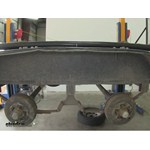







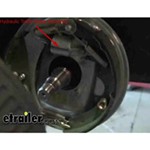
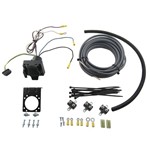


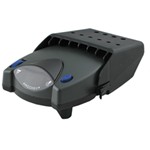
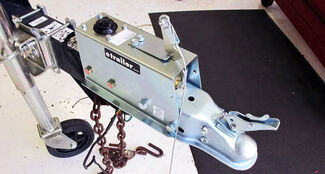
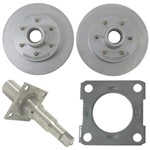


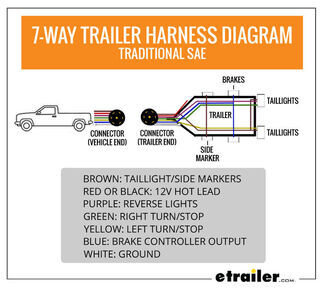
Dave A.
11/27/2020
I have 7k dexter axles my trailer mechanic put 6k dexter axle seals because he said they fit better have you heard of this before? He put axle grease in them